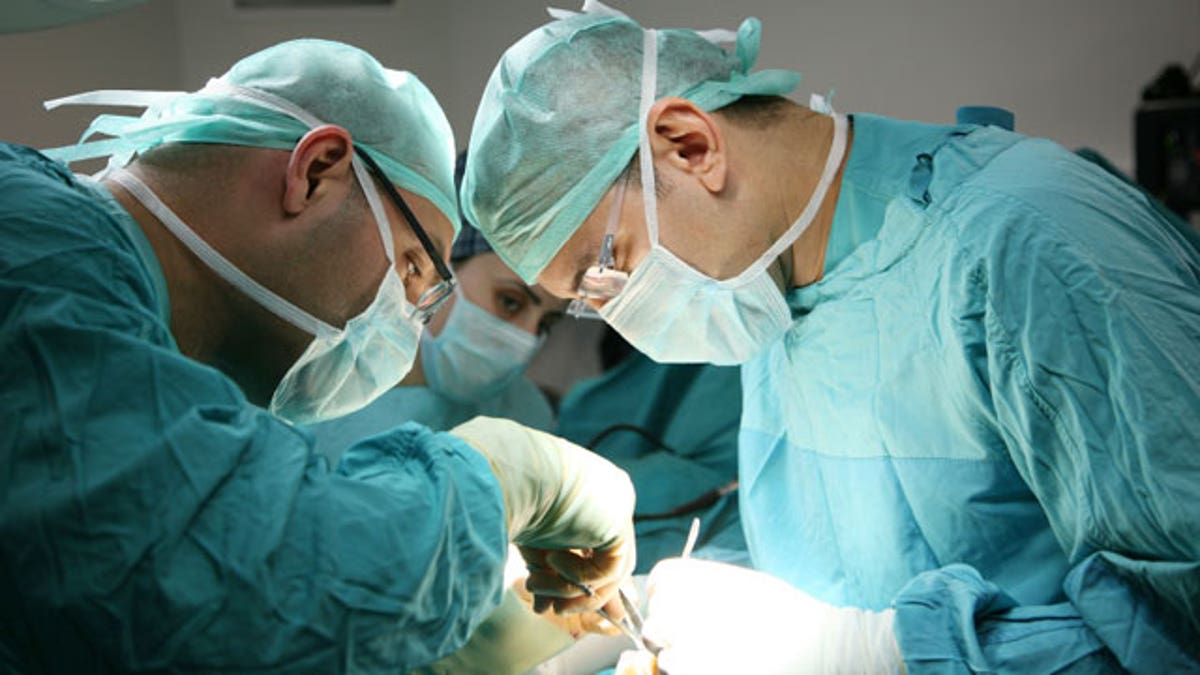
(iStock)
An Air Force recruit whose organs were donated to four patients including a kidney recipient who died of rabies had at least two untreated raccoon bites several months before he became sick, and tests confirm his rabies-infected kidney caused the recipient's disease, according to a medical journal report.
Doctors initially attributed the donor's death to other causes. But during an investigation prompted by the kidney recipient's death in February, lab testing found evidence of rabies in the donor's brain tissue and also detected encephalitis, a brain inflammation that can be caused by rabies.
The virus was consistent with raccoon rabies and was nearly identical to a virus found in the transplanted kidney and other tissue from the recipient, an Army veteran from Maryland, said the report, compiled by researchers from the federal Centers for Disease Control and Prevention and others and published Tuesday in the Journal of the American Medical Association.
Investigators don't know if organs given to three other patients - the North Carolina donor's heart, liver and second kidney-were infected with the rabies virus, but all three were considered at risk. Their recipients received anti-rabies treatment "and to date remain well," said CDC researcher Dr. Neil Vora, the lead author.
While the case is rare, it underscores the need to improve screening for would-be organ donors with suspected encephalitis, the report's authors say. They say a uniform donor questionnaire could help better identify risk factors for the virus and that rabies should be considered in donors with unexplained encephalitis.
The United Network for Organ Sharing issued guidance last year to help organ procurement organizations screen for encephalitis and other central nervous system infections in potential donors. It urged caution in accepting organs from donors with an untreated central nervous system infection.
The researchers want to improve awareness that rabies can be the cause of encephalitis, said co-author Dr. Sridhar Basavaraju, another CDC researcher. But he added, "We wouldn't want to mandate any screening that would potentially exclude transplantable organs."
The study is based on a review of laboratory tests and medical records, and interviews with relatives of the organ donor and recipient. It provides the most detailed account of the chain of events that led to the two deaths and the investigation that followed, which prompted health authorities to recommend vaccines for dozens of people who were in contact with the donor or recipients.
The case attracted public attention because of the rare circumstances, including the long time between infection and death of the transplant recipient - about a year and a half.
It was just the third documented transmission of rabies through a solid organ transplant, the report says.
Also, there are only roughly two human rabies deaths in the United States each year, and all but two domestic cases between 2000 and 2010 were linked to bats, according to the report. The authors say raccoons pose an under-recognized risk for infection and their spread into urban areas raises concern.
The patient who received the North Carolina donor's kidney at the Walter Reed National Military Medical Center in Bethesda, Md. in September 2011 has not been publicly identified.
The donor was 20-year-old William Edward Small, an avid outdoorsman from North Carolina who got sick after a fishing trip in Florida, where he was undergoing Air Force training.
Small's initial symptoms included nausea, vomiting and fever - which could indicate rabies but also other less serious conditions that are much more common. Doctors thought Small had eaten tainted fish.
Questioned during the organ procurement process, relatives said they didn't know of any recent risk of rabies exposure, and doctors did not test him.
Investigators say they learned during subsequent interviews that Small trapped raccoons for use as bait during hunting-dog training exercises, and had been bitten at least twice by the animals, 18 months and seven months before developing symptoms. He was not treated for those bites.
"If you don't ask specific questions, you don't get specific answers," said Dr. Michael Green, chairman of an advisory committee on disease transmission for the United Network for Organ Sharing.
"At the time these questions are being asked initially, families are often traumatized, in shock," Green said. "They're losing a loved one. They may not be thinking normally or straight or remember all those details."
